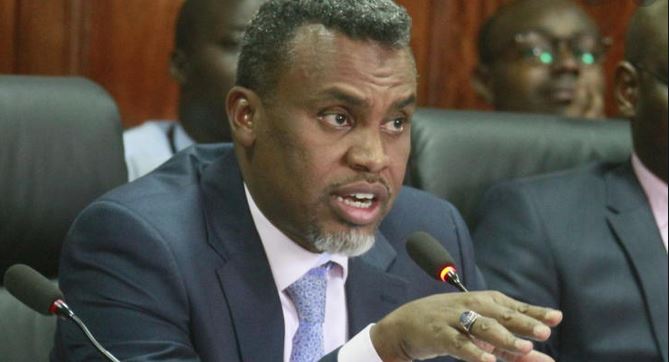×
The Standard e-Paper
Stay Informed, Even Offline

Five top commercial banks linked to the second National Youth Service procurement scam will not face prosecution now that the Sh385m they paid as penalties will go back to public coffers as restitution.
Kenya Commercial Bank, Equity Bank, Co-operative Bank, Standard Chartered Kenya and Diamond Trust Bank had agreed with the office of the Director of Public Prosecution to settle the matter outside court.